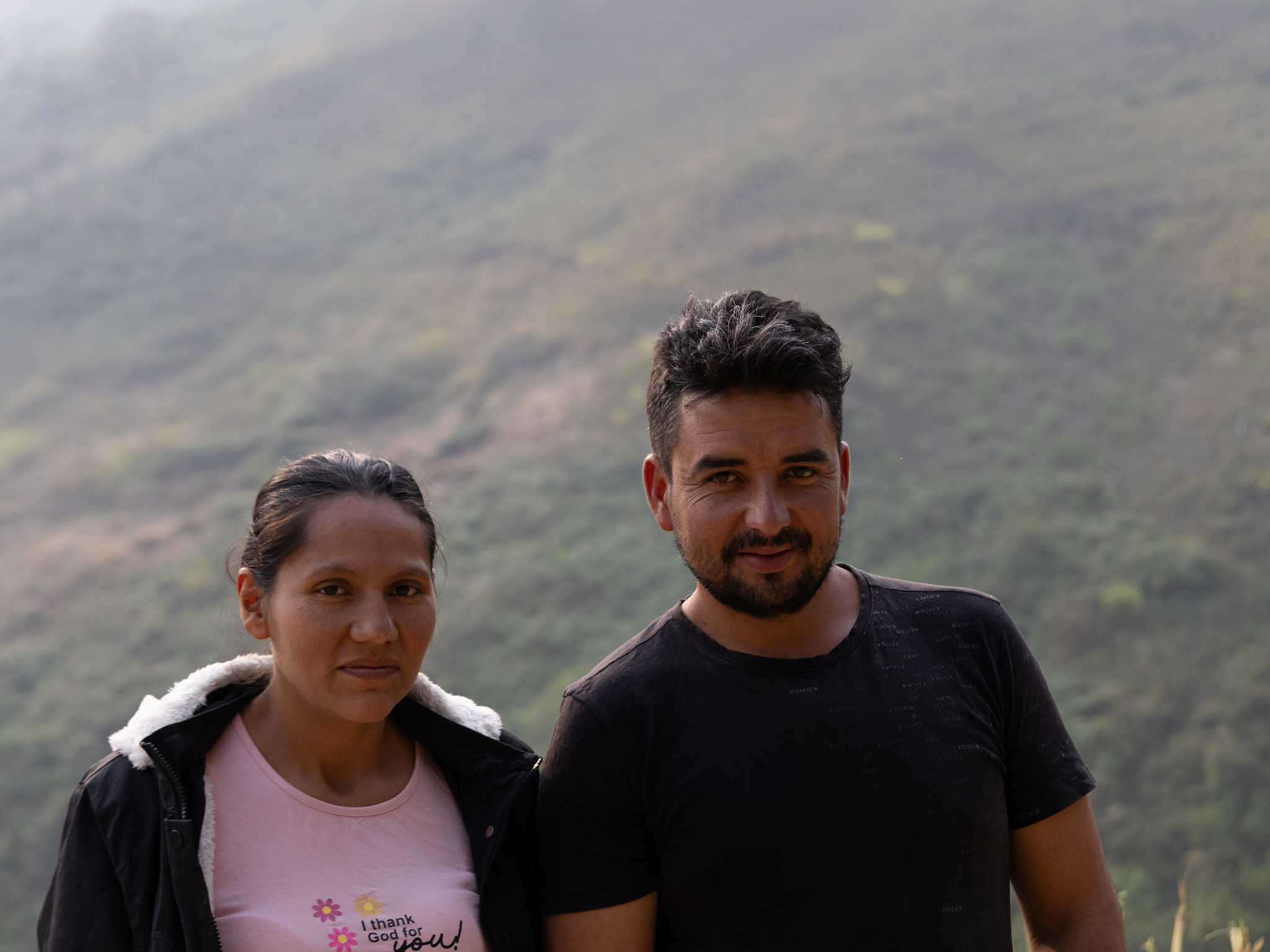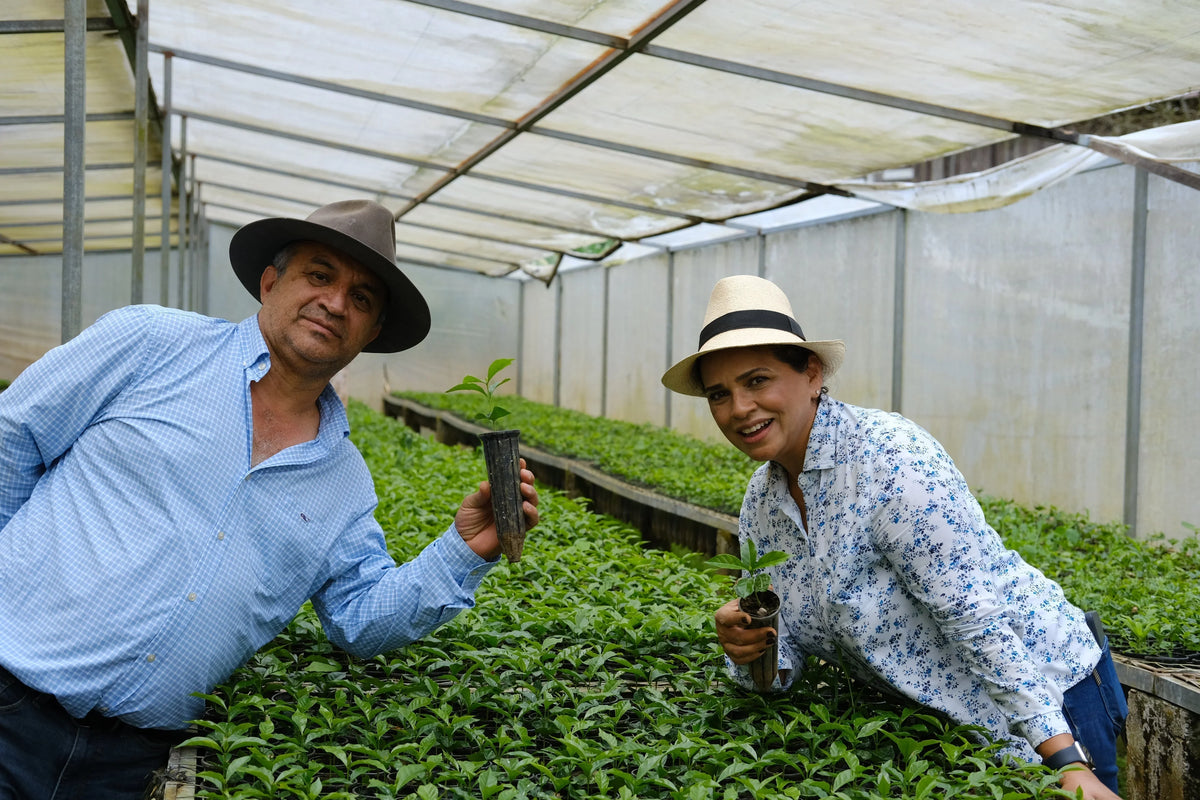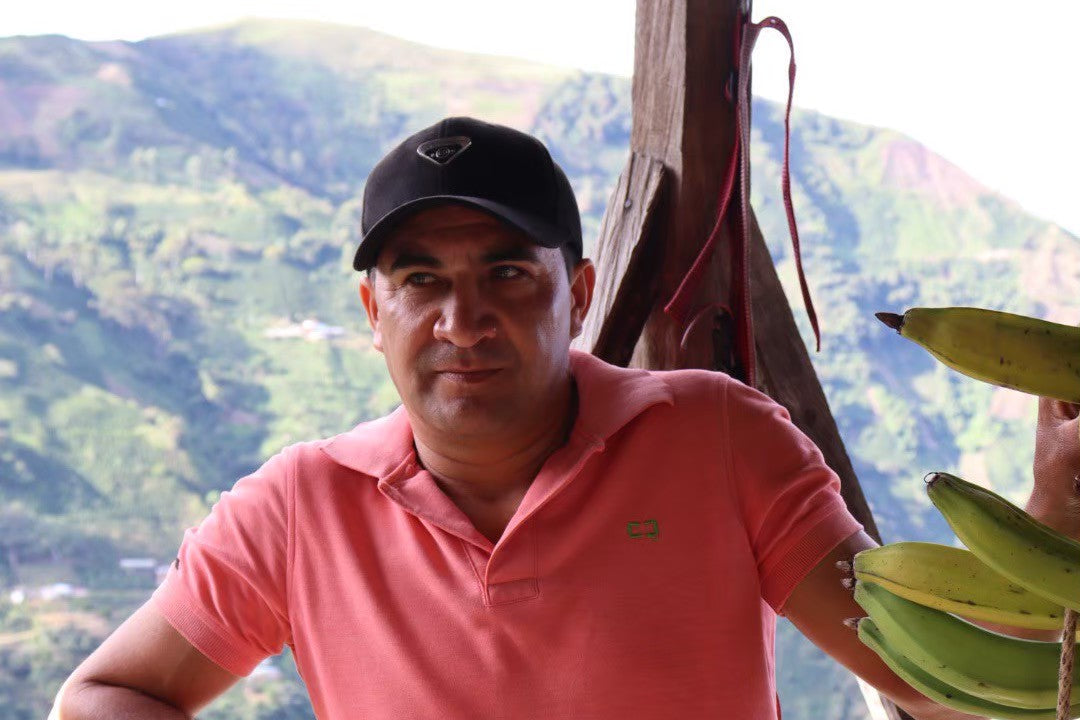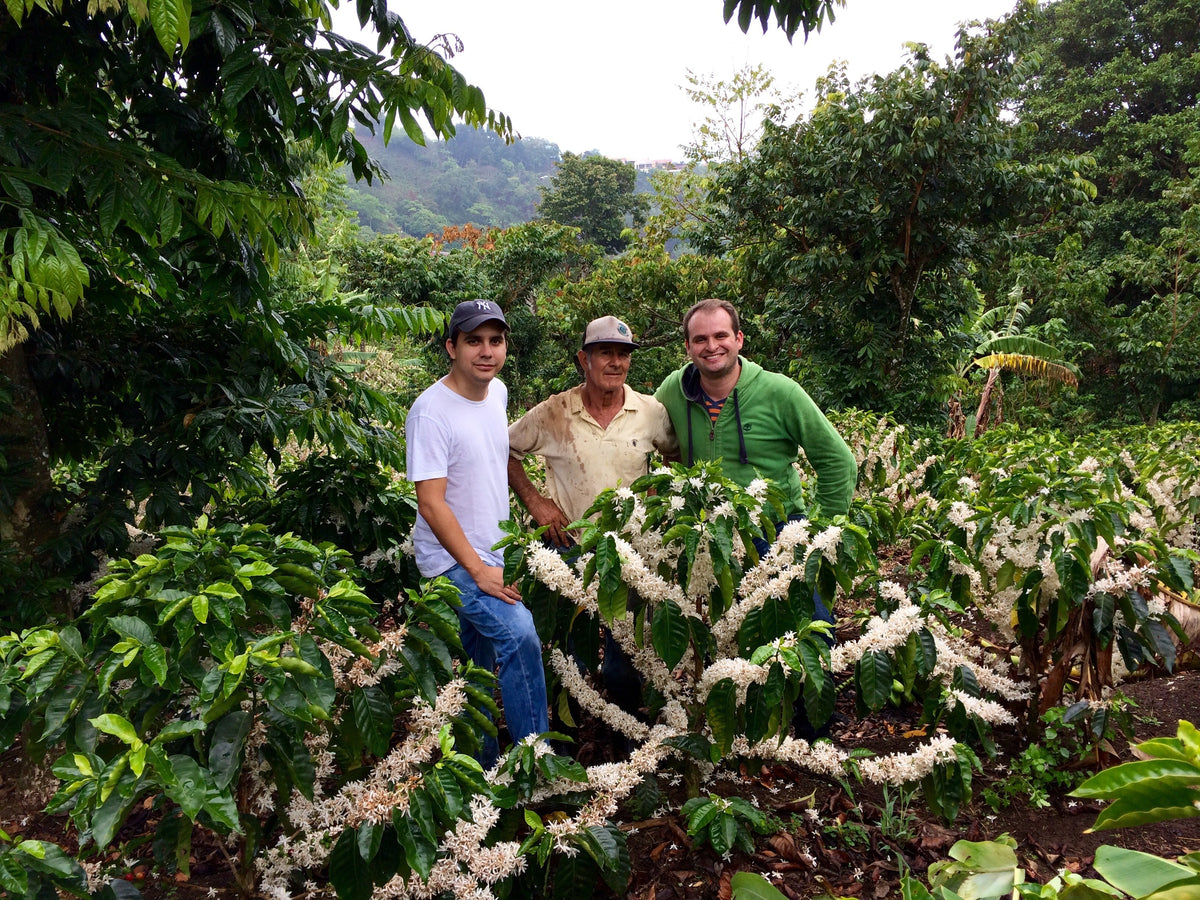
Yonal Fernandez / Peru
Yonal Fernandez / Peru
Kumquat, Pineapple, Raspberry, Jammy.
Complex fruitiness like kumquat, pineapple, and raspberry, with jammy sweetness and texture.
Producer: Yonal Fernandez
Farm: La Mandarina
Region: Cajamarca > Jaén > Colasay
Variety: Bourbon
Process: Washed
Altitude: 1,710 - 1,800 masl
Farm size: 1.5 ha
Harvest: 2024
 Yonal Fernandez is a small-scale coffee producer who works alongside his parents, siblings, and cousins.His farm is located in the village of Vencedor, in the Colasay district of Jaén, Cajamarca, at over 1,750 meters above sea level. With 3 hectares under cultivation, it would be considered a mid-sized farm by Peruvian standards.
Yonal Fernandez is a small-scale coffee producer who works alongside his parents, siblings, and cousins.His farm is located in the village of Vencedor, in the Colasay district of Jaén, Cajamarca, at over 1,750 meters above sea level. With 3 hectares under cultivation, it would be considered a mid-sized farm by Peruvian standards.The coffee he grows is a native Bourbon variety, which is commonly found as a single-variety crop in this area.In fact, most farmers in Colasay grow close to 100% Bourbon, though locally, almost all varieties other than Catimor are casually referred to as either Bourbon or Costa Rica.


The farm is family-run, but during the harvest season, additional pickers are hired to ensure cherries are picked at peak ripeness—a task that requires more hands than the family alone can provide.
During harvest, cherries are handpicked early in the morning and immediately floated in water. Overripe or defective cherries, which are less dense, float to the surface and are removed at this stage to ensure quality.
Early the next morning, Yonal uses a mechanical depulper to remove the skins and pulp from the parchment coffee.The parchment is then fermented in bags or small tanks for about 24 hours to break down and remove the mucilage.In Peru, most producers carry out the entire post-harvest process—depulping, fermenting, and drying—on their own farms.
The Fernandez family processes their coffee at their on-site beneficio using a small depulper and wooden or concrete fermentation tanks.
Because most smallholders own only basic equipment, it is rare to find producers using raised African beds for drying.
Instead, many producers dry their coffee on plastic sheets laid directly on the ground in shaded areas, or inside small polypropylene tents.
Drying usually takes 12 to 25 days, until the moisture content reaches 9–11%.Even without advanced equipment, coffee can achieve its full potential when handled with precision and care.
We visited the Fernandez family’s farm last year with Yonal’s sister, Merci. The coffee trees are planted on steep slopes, making access extremely difficult. Imagining the physical effort required to harvest coffee on such terrain during the harvest season, it’s clear that their work is incredibly tough.
Behind this wonderful coffee lies the dedication and hard work of the entire Fernandez family.




